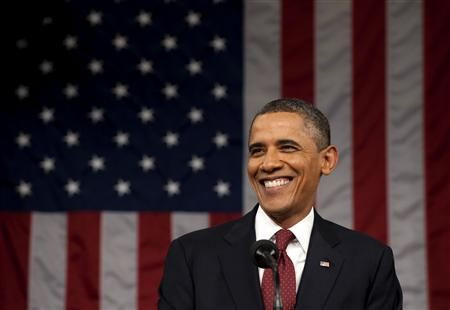Barack Obama’s ‘Promise Zones’ Promise Very Little

President Barack Obama announced on Jan. 8 the creation of five zones around the country in which the federal government would help hard-hit communities generate jobs and combat poverty. The five "Promise Zones" are to be located in Los Angeles, Philadelphia, San Antonio, southern Kentucky and Oklahoma's Choctaw Nation. They are the first of 20 such areas that Obama plans to establish by the end of his presidency.
The initiative would not funnel new money into the communities but would lend small businesses “aid in cutting through red tape to get access to existing resources," Obama announced (in other words, tax cuts and deregulatory measures aimed at spurring economic and job growth). "Your country will help you remake your community on behalf of your children." The president first mentioned "Promise Zones" in December during a speech on economic inequality, which he called "the defining challenge of our time." Among the many obstacles to addressing inequality, he said, was the belief that government can't do anything about it. History suggests otherwise, he noted: "Government action time and again can make an enormous difference in increasing opportunity and bolstering ladders into the middle class."
Indeed, government has often positively shaped the course of American history, but Obama's plan to create minimal tax and minimal regulation zones isn't a part of that history. Government has made the most difference when it wisely spent at historical moments when it was most prudent to expand fiscal policy. We are once again at one of those moments, but Washington appears unable to free itself from the grip of austerity in order to do the right thing. It could be eight more years before the economy, under its own power, is strong enough to recover all the actual jobs lost in the financial panic of 2008 as well as the potential jobs that were never realized, according to a new report by the Brookings Institute. That's more than 7.4 million jobs needed, and December added just 74,000.
At the same time we are experiencing historically low rates of taxation. If the concept of "Promise Zones" were correct -- that low taxation spurs business growth and hiring -- then we probably wouldn't be talking about the need for establishing such privileged areas of commerce.
Another problem with "Promise Zones" is the assumption that small businesses can generate all the jobs needed. Obama can be somewhat forgiven, as everyone in Washington appears to believe small business are the answer to everything. The facts, however, point to a much different conclusion. From 1992 to 2010, small businesses -- employing from one to up to 500 workers -- added only 105,000 net jobs per quarter, according to a 2011 study by the Federal Reserve Bank of St. Louis. Moreover, many of the small business owners and entrepreneurs who would presumably be attracted to the zones already received federal assistance. A 2010 report by the Small Business Administration's Office of Advocacy found that most small businesses are sole proprietorships, which means they qualify for federal tax exemptions.
What's more, "Promise Zones" aren't new. The idea has been around since the late 1960s, enough time to know that they don't work, says Bruce Bartlett, an economist who worked in the Reagan administration. For one thing, business owners move their existing concerns from outside to inside the zones, taking advantage of tax breaks but not creating new jobs. Moreover, Bartlett said, such enterprise zones don't address the reason businesses aren't investing in poor areas. It has nothing to do with taxes, Bartlett said. Poor areas "lack an educated labor force, transportation [and] a local population with purchasing power."
Purchasing power is key to properly understanding the Great Recession. Ordinary Americans are not earning enough to buy the things that businesses sell, so businesses are not going to hire people no matter how low their taxes might be. Obama's enterprise zones are therefore misguided before they have begun because they mistakenly focus on taxes, not wages. More crucial than enterprise zones would be lifting the wages, through executive order, of the Americans who work for companies with federal contracts. The president has pledged to do that. In addition to congressional approval of a minimum wage hike, this would boost demand and drive the economy.
Better yet would be doubling capital gains taxes and using the revenue for research and infrastructure redevelopment. He would obviously need congressional approval and that's unlikely. But why is the president launching on initiative of such marginal merit? My fear is that Obama can't imagine a viable alternative. During his inequality speech, Obama expressed a surprisingly narrow vision of what's possible with government when he reminded us that no matter how politically progressive you are, you "still got to be concerned about competitiveness and productivity and business confidence that spurs private sector investment."
What does that mean for millions of Americans unemployed for so long that businesses won't give their resumes an honest look? "Earlier this year, I challenged CEOs from some of America’s best companies to give these Americans a fair shot," he said. That's another way of saying government, even under well-meaning Democrats, can't do much about it.
John Stoehr is the managing editor of The Washington Spectator.
© Copyright IBTimes 2025. All rights reserved.





















